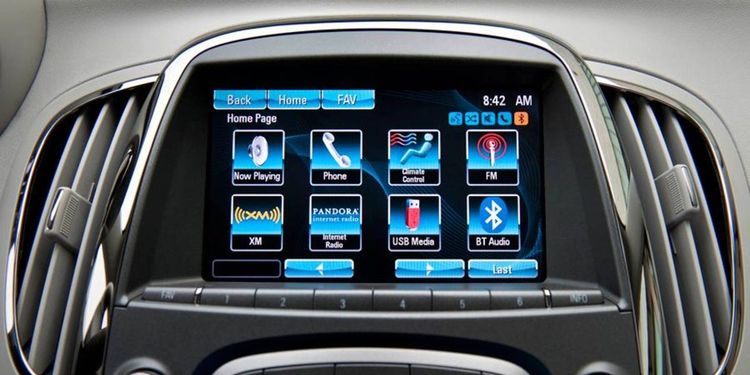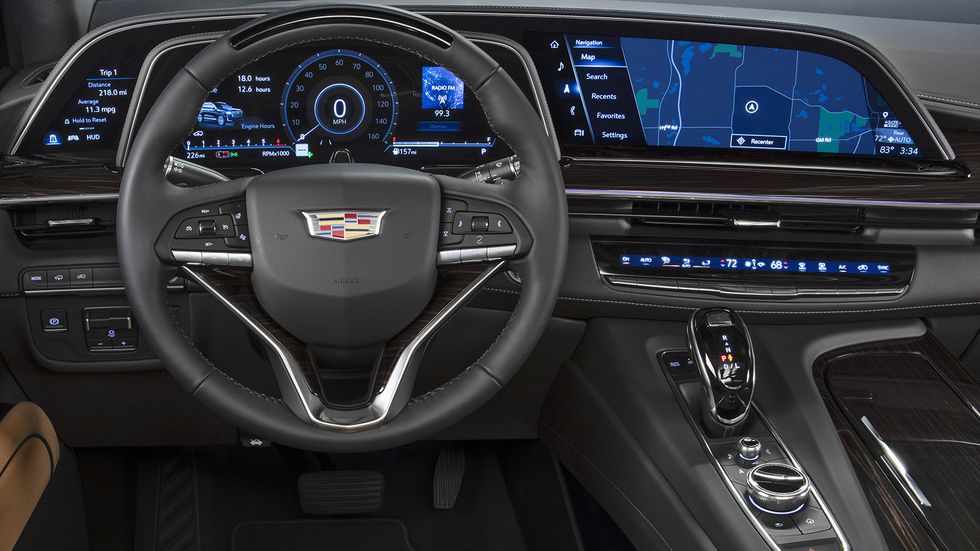Privacy Is Sorely Lacking in Modern Cars and Trucks, Report Says

Many of us have become used to having screens in cars that provide us with a lot of data, but is it possible that modern cars are revealing too much of our personal information? The Mozilla Foundation has discovered that out of 25 different car brands, they are the "official worst category of products for privacy that we have ever reviewed." Using the California Consumer Privacy Act, this non-profit organization conducted their investigation and placed these automakers in a creepy ranking from the most disturbing to the less disturbing ones.

Car manufacturers have been promoting the benefits reaped from their collaborations with significant companies in the computer technology field for a large portion of the current century.
As you're cruising down the road in your fresh set of wheels, the dashboard will detect your level of fatigue and give you a gentle heads up if you're too tired to continue driving. It will even recommend taking a pause and direct you to the nearest McCoffee shops through your navigation system.
Afterwards, it keeps track of when you make stops (or don't make any), putting them together with other places visited, along with the phone contacts and songs transferred from your mobile device to the car.
According to a report published this week by the free software group, Mozilla Foundation, the automakers have had a superb outcome. However, as drivers, we appear to be in a comparable circumstance to Dave challenging HAL 9000 in the Space Odyssey film.
The buyers' guide researched 25 automotive brands and they all earned a label called "Privacy Not Included" created by Mozilla. This label is awarded to products that don't meet acceptable privacy standards. This label indicates that cars are the worst product category for privacy according to Mozilla. The buyers' guide was initially published in 2017.
According to the report, every car brand we analyzed gathers an excess amount of personal information and utilizes this data for purposes other than running your vehicle and maintaining their association with you.
Details about the Cadillac Escalade's visual information.
To give some background, 63% of the apps that target mental health (which is another type of product category that has major issues with privacy) that we evaluated this year received the same negative feedback.
Car manufacturers have the ability to obtain personal data from the vehicle's connectivity services and the associated app, which has the ability to gather data from your cellular device. Additionally, they can collect supplementary information from external sources such as SiriusXM or Google Maps.
According to Mozilla, cars that are connected to the internet can gather extremely personal information such as your medical background, genetic makeup, velocity, travel destinations, the type of music you listen to while driving, and even details about your sex-related activities. This data can also be used to infer more information regarding your intellect, skills, and preferences.
Out of the 25 car brands, 21 of them (equaling 84%) have agreements that allow them to share personal data belonging to car owners. In addition, 19 of the car brands (76%) permit the selling of personal data.
According to Mozilla, a total of fourteen individuals, which makes up 56% of them, have stated that they possess the ability to disclose your personal information to either a government or a law enforcement agency, if prompted to do so by a "request".
According to the report by the non-profit charity, they found out these findings due to the California Consumer Privacy Act that obliges businesses to reveal such information.
Mozilla has done research on 23 car brands available in the US and two not available (Renault and Dacia). Interestingly, only these two brands have declared that all drivers have the privilege to delete their personal data.
As stated by Mozilla, it seems likely that Europe's strong General Data Protection Regulation is responsible for this. The experts couldn't confirm if any of the 25 brands encrypt all the personal data saved in the automobile - a critical prerequisite for acquiring the Minimum Security Standards label from Mozilla.
"Super Creepy Automakers: The Creepiest"
Mozilla has listed the top 16 brands that engage in the most intrusive data collection practices. These brands have been classified as "super creepy" based on the extent of their data gathering. The ranking goes as follows, with the worst offenders listed first: Nissan, Chevrolet, Kia, Hyundai, Dodge, Lexus, Audi, Toyota, Honda, Volkswagen, Ford, Fiat, Buick, Subaru, Lincoln, and Acura.
"Less Super Creepy Now"
Four car brands are mentioned here: GMC, Mercedes-Benz, Chrysler, and Renault.
Getting Creepier: Moving Down A Notch
Some automobile brands that have gained popularity in recent years are Jeep, BMW, Cadillac, and Tesla. These vehicles offer unique features and styles that attract a diverse range of consumers. Jeep is known for their rugged off-road capabilities, while BMW is associated with luxury and sporty performance. Cadillac is often considered a symbol of American prestige and Tesla is known for its innovative electric-powered vehicles. Each of these brands has their own niche in the market and continues to impress consumers with their advanced technology and design.
Dacia cars are relatively inexpensive and may not include a wide range of connected features.
This list seems to have somewhat of a JD Power & Company bias.
Have you ever wondered why GMC seems scarier than Cadillac, why Buick is even spookier than GMC, and why Chevrolet is the creepiest of them all? If you do some investigating into these brands, you'll find that Mozilla examines General Motors' overarching privacy policy across all of these brands. It's possible that the mychevroletapp is freakier than the mybuickapp.
However, it is quite unsettling to come to the realization that these brands such as Nissan and Dacia are considered to be inferior to an Amazon Alexa.
It's important to mention that Tesla doesn't come across as creepy compared to Mercedes-Benz or Nissan. However, it's worth mentioning that Mozilla has only ever reviewed one other product before this, which was an AI chatbot that successfully met every single privacy standard set by the organization.
The thing that distinguished them was receiving the label of being an unreliable AI. According to the article, the brand's Autopilot, which runs on artificial intelligence technology, was found to have been a contributing factor in 17 fatalities and 736 accidents. As a result, it is currently being investigated by multiple government organizations.
Except for Renault and Dacia, all brands mentioned in the list joined the Alliance for Automotive Innovation's "Consumer Protection Principles" alliance. However, Mozilla reported that none of the 23 brands are adhering to the principles.
Do you believe that the Mozilla report will encourage automakers to reduce the amount of personal data they collect in their vehicles? Share your thoughts in the comments section.
Todd Lassa, who grew up in Metro Milwaukee, had a talent for recognizing cars by their year, make, and model. However, when American automakers stopped making yearly changes to the exterior design of their cars, Lassa turned his focus to underpowered British sports cars that had oil leaks. He had various journalistic jobs before working at Autoweek, Motor Trend, and Automotive's Detroit offices. Lassa now resides in Mountain Maryland with his wife, three dogs, three sports cars (only one is British), and three bicycles. Thehustings.news, which he founded, is not related to cars.



















